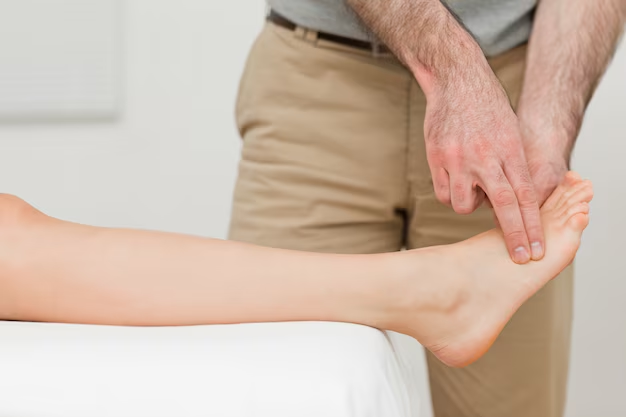Finding Relief: Effective Strategies to Alleviate Gout Symptoms
Gout—a condition characterized by sudden and severe pain in the joints—can drastically impact daily life. For those who have experienced its pain, the drive to find effective ways to manage or reduce gout is not just a necessity but a priority. Understanding more about gout and exploring practical steps to alleviate it can empower individuals to lead more comfortable lives.
Getting to Know Gout
What is Gout?
Gout is a type of arthritis caused by the accumulation of uric acid crystals in the joints, leading to inflammation. Uric acid is a byproduct of purine metabolism, substances found in various foods and the human body.
Recognizing the Symptoms
Common Signs:
- Sharp pain typically starting in the big toe
- Swelling and redness around the joint
- Warmth and tenderness in the affected area
Chronic Concerns:
- Frequent flare-ups potentially leading to joint damage
- Formation of tophi—lumps under the skin due to crystal deposits
Understanding these symptoms can help in seeking timely intervention to manage gout effectively.
The Role of Diet
A critical aspect of controlling gout involves dietary changes. Adapting one's diet can significantly decrease uric acid levels and reduce the likelihood of attacks.
Foods to Avoid
High-purine foods are significant contributors to elevated uric acid levels. Here’s what to be cautious about:
- Red Meat & Organ Meats: Liver, kidneys, and other organ meats contain high levels of purines.
- Certain Seafood: Avoid shellfish, sardines, and anchovies, which can aggravate gout symptoms.
- Alcohol: Especially beer, which is high in purines and can increase uric acid levels rapidly.
Embracing a Gout-Friendly Diet
Switching to a diet that supports lower uric acid levels is both practical and beneficial.
- Fruits & Vegetables: Enjoy cherries, berries, and citrus fruits, which are known to reduce uric acid levels. Green leafy vegetables are also excellent choices.
- Low-Fat Dairy: Milk and cheese can help lower the risk of gout, providing essential nutrients without increasing uric acid.
- Whole Grains & Nuts: These foods offer fiber and keep you full while not contributing to uric acid production.
Hydration: The Key to Flushing Out Uric Acid
Why Hydration Matters:
Keeping the body well-hydrated helps dilute the uric acid in the bloodstream, facilitating its excretion through urine.
Simple Hydration Tips:
- Drink Ample Water: Aim for 8-10 glasses a day. Infusing water with lemon or cucumber makes it more enticing and promotes regular consumption.
- Incorporate Herbal Teas: Some research suggests that tea, like green tea, can help lower uric acid.
Maintaining optimal hydration supports the overall health of the kidneys, boosting their function to eliminate excess uric acid effectively.
Physical Activity and Weight Management
Importance of Regular Exercise:
Regular exercise not only aids in weight management but also improves overall joint health, thus reducing gout attacks.
Choosing the Right Activities:
- Low-Impact Exercises: Engage in activities like swimming, cycling, or walking, which are gentle on the joints.
- Strength Training: Light strength training promotes joint stability and muscle support, reducing stress on the affected joints.
Weight Management:
Maintaining a healthy weight reduces the body's uric acid production and minimizes the risk of gout. Focus on gradual weight loss to avoid dehydration or rapid purine metabolism spikes.
Medications and Their Place in Gout Management
While lifestyle changes are crucial, medication can play an essential role in managing chronic gout.
Commonly Used Medications
- NSAIDs (Non-Steroidal Anti-Inflammatory Drugs): These are typically used during acute attacks to reduce pain and inflammation.
- Colchicine: Though known for its side effects, it’s another option for managing acute flares by decreasing the crystal build-up.
- Urate-Lowering Therapy: For those with chronic gout, drugs like allopurinol help reduce uric acid production and prevent future attacks.
It’s imperative that any medication choice be guided by a healthcare professional, ensuring tailored treatment.
Alternative and Complementary Therapies
Considering alternative therapies can offer additional relief and prevention.
Popular Options:
- Acupuncture: Some find relief from gout symptoms through acupuncture, which may help reduce inflammation and pain.
- Massage Therapy: This can improve circulation and reduce joint stiffness, aiding in symptom management.
Supplements and Herbal Remedies:
While the evidence varies, supplements like vitamin C are thought to help lower uric acid levels. However, these should be discussed with a healthcare professional to avoid potential interactions with treatments.
Coping with Gout: Lifestyle Tips and Support
Building a Support System:
Dealing with a chronic condition can be challenging. Connecting with others who understand gout through support groups can provide comfort and shared experiences.
Stress Management:
Reducing stress enhances overall well-being and may lower the risk of gout flare-ups. Practices such as yoga, meditation, and mindfulness are excellent tools for stress relief.
Empowering Self-Care
Knowledge is power when it comes to managing gout. Here's a quick reference to empower you on your journey.
Practical Tips for Reducing Gout
- 🚰 Stay Hydrated: Drink plenty of water daily.
- 🍏 Adopt a Healthy Diet: Focus on low-purine foods.
- 🏊 Exercise Regularly: Engage in low-impact activities.
- ⚖️ Maintain a Healthy Weight: Aim for gradual and sustainable weight loss.
- 💊 Consider Medications: Consult a healthcare provider for personalized advice.
- 🌿 Explore Alternative Therapies: Investigate acupuncture or massage for additional relief.
- ❤️ Seek Support: Join a community for shared experiences and encouragement.
These strategies offer a comprehensive approach to managing and reducing the impact of gout, paving the way for improved quality of life.
Understanding and addressing gout from these various angles allows individuals to take proactive and informed steps towards reducing symptoms and improving health. While controlled by a healthy lifestyle and informed choices, gout need not dominate your life.

